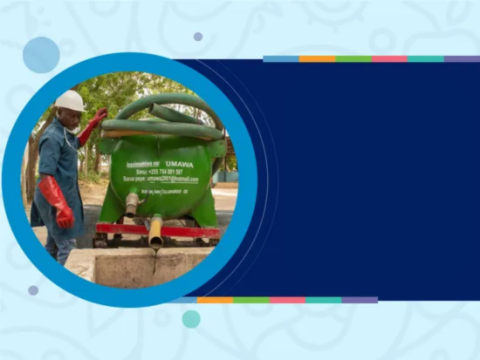
UNITAR Online Catalogue
Antimicrobial Resistance in the environment: key concepts and interventions

The Defeat NCD Partnership
Antecedentes
Antimicrobial resistance (AMR) is one of the leading threats to human health. Tackling AMR will require a One Health response, including addressing AMR in the environment. The environmental dimensions of AMR are often neglected in national action plans and investments on AMR. In this course, you will learn why addressing AMR in the environment is essential and gain insights into how action can be taken to prevent and control AMR in the environment at the national level.
Objetivos del evento
- Recall the basics of environmental AMR and be able to describe the risks to human and animal health, food systems, environment, livelihoods and economies;
- Describe the key drivers of AMR in the environment and explain what contributes to AMR emergence, spread and transmission in the environment;
- Apply overall environmental approaches to prevent, control and mitigate AMR;
- Demonstrate governance approaches to addressing AMR in the environment and action that can be embedded in national action plan processes to support AMR detection, control and mitigation.
Contenido y estructura
Acknowledgments: This e-learning course is developed by the World Health Organization with inputs from AMR Quadripartite Organizations including Food and Agriculture Organization (FAO), United Nations Environment Programme (UNEP) and the World Organisation for Animal Health (WOAH). Module 5 was also reviewed by Professor Joakim Larsson.
Metodología
This Open WHO course draws content from three key sources:
- World Health Organization, Food and Agricultural Organization of the United Nations & World Organization for Animal Health. (2020) Technical brief on water, sanitation, hygiene, and wastewater management to prevent infections and reduce the spread of antimicrobial resistance;
- United Nations Environment Programme. (2023). Bracing for Superbugs: Strengthening environmental action in the One Health response to antimicrobial resistance;
- and an AMR Quadripartite Webinar Series on AMR in the environment held throughout 2022. https://www.unep.org/events/webinar/antimicrobial-resistance-environment-webinar-series
We would like to acknowledge contributions from experts involved in the webinar series for supporting the consolidation and review of the webinar content for the development of this Open WHO course.
Approximate course duration: Approximately one and half hours.
Languages
This course is available in the following languages: English.
Content Warning
This course may contain images, videos, and multimedia materials related to healthcare that may include graphic depictions of medical conditions, surgical procedures, and other clinical content. These materials are intended for educational purposes to enhance understanding of real-world medical scenarios and are essential for the comprehensive learning experience.
Viewer discretion is advised. If you find any content distressing, you may pause or skip the material as needed.
Assessment & Awards
You will receive a Confirmation of Participation upon completing all the modules in this course. Please note that this award does not serve as a professional qualification.
Público objetivo
The primary audience for this course is all stakeholders involved in addressing AMR at the national level, including those with responsibilities for the environment. The course is also useful to those implementing actions to address AMR in the environment at global and local levels.
Información adicional
Guidance note
The content of this course has been validated, verified, and is owned by the WHO Antimicrobial resistance (AMR) National Action Plans and Monitoring team.
This course is not a WHO Academy co-produced course. In case of any concerns or feedback on the course content, please share your feedback in the survey form at the end of this course.
Browser and device compatibility
For the best experience, we recommend using the latest version of Chrome, Firefox, Safari, or Microsoft Edge to access the courses.